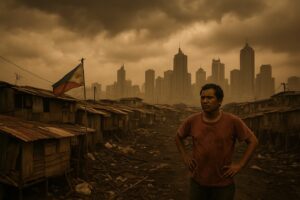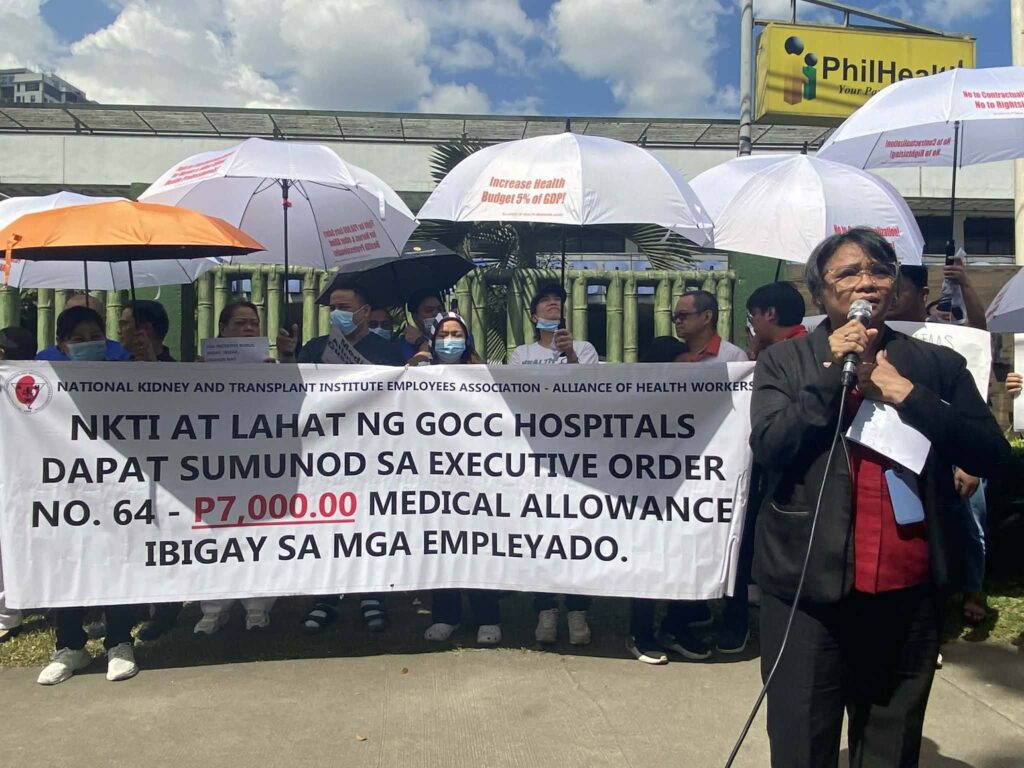By Raffy Gutierrez
We live under a design more than a democracy. A system where power, money, and influence aren’t separate forces but parts of a consolidated machine—an oligarchy that’s built into our institutions and institutions built to defend it. The result? A middle class too often powerless, and a lower class left exposed to manipulation, not by chance but by design.
Entrenched dynasties: the architecture of power
At the core of this machine are political dynasties—not exotic anomalies but the rule. The 1987 Constitution commands us to “prohibit dynasties as may be defined by law,” yet the law never comes. Decade after decade, seat after seat, family after family, the same names rotate in office. This isn’t merely a function of voter preference—it is the inevitable outcome of a system built to favour inherited alliances, resources and networks. When regeneration of power is biological rather than meritocratic, policy competition withers, accountability pales and reform stagnates.
Manufactured media, controlled narratives
Power doesn’t just reside in government—it resides in who gets to tell the story. In our media ecosystem, concentration of influence is high risk. With the near-monopoly of free-TV viewership and the dominance of a handful of platforms, competition in viewpoint collapses. That means politics becomes a franchise, and elections become brand extensions of dynastic families. In a public square where the loudest voices are also the richest, democracy becomes an echo chamber.
Middle class: the silent majority, muted
If dynasties and media concentrated power, the middle class becomes their terrain—not their rival. Roughly four in ten Filipinos might qualify as middle-income, yet they’re labelled “growing but vulnerable.” Vulnerable to inflation, job shocks, unplanned healthcare costs. Vulnerable to slipping back into the lower brackets, and so risk-averse politically. A middle class that fears decline is one that watches more than it acts. And while it watches, the oligarchical machine keeps running.
Lower class: not powerless because of ignorance, but because of structure
It is unjust to say the lower classes are “dumb”—their circumstances are structurally rigged. Poor schooling, high survival pressure, flagged by statistics: the Philippines rates far below global averages in key educational assessments. With limited time and energy to invest in civic or political literacy, a populace under immediate survival stress becomes easy to steer. Short-term relief becomes currency. Spectacle becomes story. The oligarchy knows this. The divide between hearing and understanding is bridged by dependence.
Inequality, not just in income but in power
Yes, poverty has dropped from its pandemic peak. But structural inequality hasn’t changed nearly as fast as incomes could claim victory. Growth isn’t redistribution. When gains flow to the already connected and losses are borne by the many, you don’t fix inequality—you hide it. The middle class grows—but as a safety net socked with holes. The lower class remains exposed. And the few who hold control? They entrench.
Institutions exist—but they lag
We do have tools: competition laws, transparency laws, constitutional mandates. Yet the enforcing arms are often toothless when it comes to confronting politically-connected players. It’s not ignorance—it’s inertia. Markets meant to be contestable become monopolistic. Media meant to be plural becomes monolithic. Politics meant to be vibrant becomes hereditary. This is not accident. It’s architecture.
Three levers to unlock a system locked by design
First, pass the law that the Constitution demands—an anti-dynasty law with real force and transition rules. Without it, political families remain franchises.
Second, deconcentrate the attention economy—fund independent media, regulate influencer and political advertising transparency, demand platforms take public-interest seriously alongside profit.
Third, front-load human capital—nationally scale learning-recovery, skills-mobility, adult-education so that the middle class feels capacity rather than anxiety, and the lower class gains the literacy to resist manipulation.
If we want a republic, we must unrig the rules that decide who writes the rules. Power locked into the same few hands doesn’t just corrupt—it replaces the possibility of challenge. We must open the gates, loosen the clamps, and rediscover democracy as living—not just decorative.
We stand today not in need of more ceremonies of change—but tools of change. The oligarchy today isn’t some distant metaphor—it is present, measurable, structural. And our middle class? It is more than the audience. It’s more than a victim. If mobilized, it can become the hinge of change. The lower class? Not objects of pity—but bearers of dignity, when finally freed from machinations and given agency alongside opportunity.
We are capable of breaking the cycle. But breaking it means facing both the machine and ourselves: the fear of sliding backward, the inertia of comfort, the myth that “someone else will fix it.” The next time we ask “who holds the lever?” we must answer—not by pointing to a name, but by identifying the lever itself—and by pulling it.
Until we take this step, the Oligarchy will continue to rule over the rest of us until nothing’s left.
——-
Rafael “Raffy” Gutierrez is a Technology Trainer with over 25 years of experience in networking, systems design, and diverse computer technologies. He is also a popular social media blogger well-known for his real-talk, no-holds-barred outlook on religion, politics, philosophy.





Alright fellas, time to talk about BlazeBrasil! I gotta say, the platform is top-notch and the action never stops. Definitely something to check out if you’re looking for a fun and exciting time. Who knows, you might even hit it big! blazebrasil
Heard about hm88game from a mate, decided to check it out. Honestly, not bad! The slots are pretty fun and registration was a breeze. Worth a look if you’re looking for a new spot to spin the reels. Check it out here: hm88game